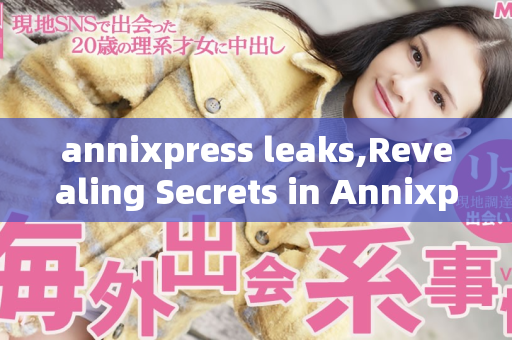
The recent revelations stemming from the Annixpress leaks have sent shockwaves through various sectors, drawing attention to the hidden practices and secrets within the organization. The leaked documents have uncovered a plethora of information that raises questions about the ethical standards and transparency maintained by the company. As more details emerge, it becomes increasingly clear that the implications of this leak extend far beyond internal operations, potentially affecting partners, clients, and the broader industry.
At the heart of the Annixpress leaks is a collection of internal communications, strategic plans, and operational guidelines that were never intended for public scrutiny. These documents reveal a troubling pattern of behavior, including questionable decision-making processes and a lack of accountability at multiple levels of the organization. Industry analysts have expressed concern that the practices outlined in the leaks could compromise the integrity of the company and its stakeholders, leading to a loss of trust that may take years to rebuild.
One of the most striking aspects of the leaks is the evidence of internal conflicts and power struggles that have plagued Annixpress. Employees have come forward to describe a toxic work environment where dissent is stifled, and whistleblowers are often met with retaliation. Such revelations paint a picture of an organization that prioritizes profit over ethical considerations, raising serious questions about its leadership and corporate governance. The culture of silence fostered within Annixpress could have far-reaching consequences, not only for its employees but also for the clients who rely on its services.
The fallout from the leaks has prompted calls for greater oversight and regulation of the industry. Stakeholders are now demanding transparency and accountability from companies like Annixpress, emphasizing the need for ethical practices that align with societal values. As the public becomes more aware of the issues highlighted in the leaks, there is an increasing expectation for corporations to operate with integrity. The Annixpress leaks could serve as a catalyst for change, urging other organizations to examine their own practices and consider the long-term effects of their decisions on their reputation and stakeholder trust.
In response to the leaks, Annixpress has issued a statement acknowledging the situation while denying any wrongdoing. The company's leadership insists that steps are being taken to address the concerns raised by the leaks, although many remain skeptical of these assurances. Experts suggest that real change will only occur if the organization commits to a thorough overhaul of its internal culture and practices. This could involve implementing new policies that encourage open dialogue, protect whistleblowers, and promote ethical decision-making at all levels.
As the Annixpress leaks continue to unfold, they serve as a stark reminder of the importance of transparency and ethical conduct in corporate governance. The implications of these revelations extend far beyond the confines of the organization, touching on broader themes of accountability, trust, and the responsibilities that companies have towards their employees and clients. The world will be watching closely to see how Annixpress responds to this crisis and whether it can emerge from the shadows of its past practices into a more transparent and ethically sound future.









